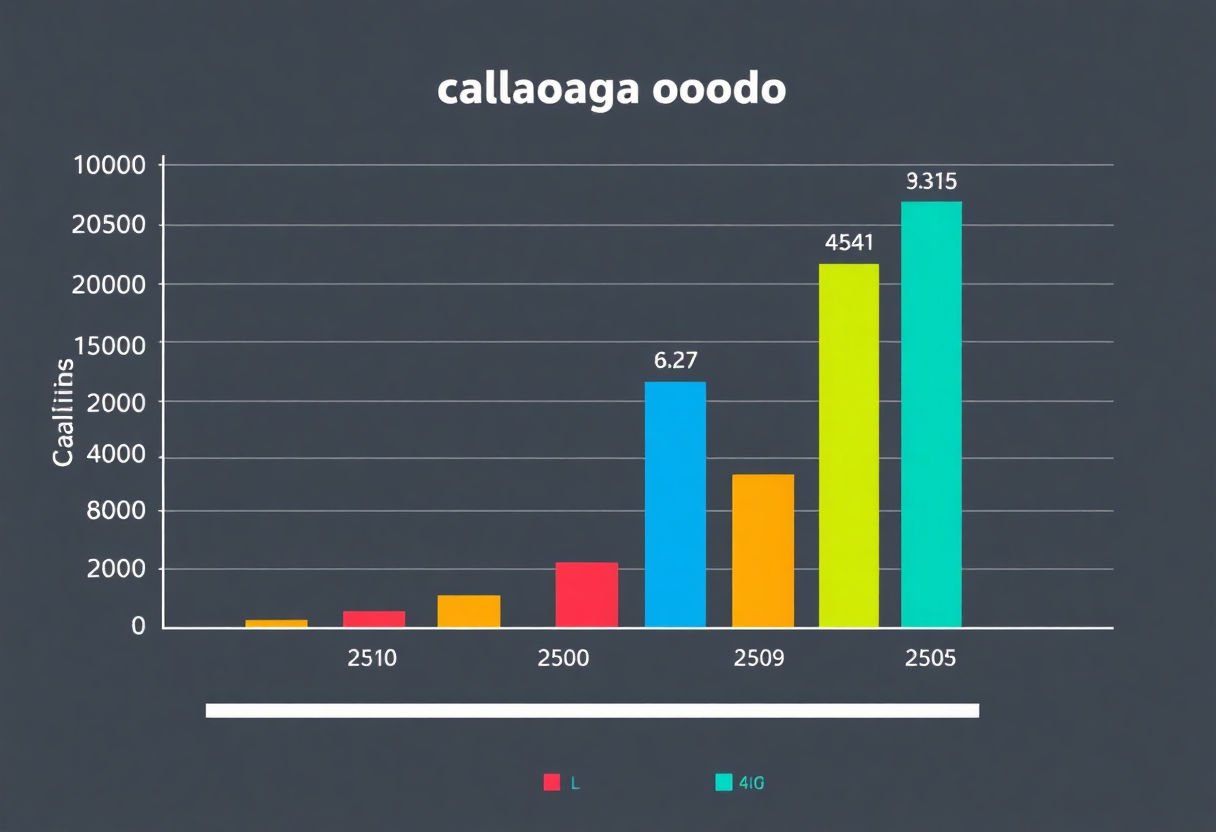Calcium is an integral part of a child’s nutrition, playing a critical role in bone and teeth development. As modern diets sometimes fall short in providing adequate calcium, supplements such as gummies have become increasingly popular. These delicious, chewable forms not only make it easier for children to get their daily dose but also come with additional benefits like enticing flavors and straightforward consumption. This comprehensive guide will delve into the reasons behind choosing gummies, considerations for selecting the right product, and compare popular brands, ensuring parents are well-equipped to make informed decisions about their child’s calcium intake.
Key Takeaways
- Calcium gummies for kids offer a tasty and convenient way to ensure children receive their essential daily calcium for bone and dental health.
- Key factors when choosing gummies include checking for natural ingredients, ensuring they fit dietary restrictions, and matching dosage recommendations for age.
- While generally safe, it is important to be aware of potential side effects such as digestive issues and to monitor intake to prevent over-supplementation.
- Several brands offer reliable options with different flavors and compositions, making it easy to find a suitable choice for children’s varied tastes and nutritional needs.
- Integrating calcium gummies into a child’s diet should be balanced with other calcium sources to promote holistic health and prevent reliance on supplements alone.
Why Calcium is Essential for Kids

Calcium plays an indispensable role in the growth and development of children. This essential mineral is a critical building block for healthy bones and teeth, key components of a child’s skeletal structure. During the formative years, children’s bones are in a constant state of growth and remodeling, requiring a steady supply of calcium to achieve optimal density and strength.
Beyond bone health, calcium is integral to several bodily functions. It supports muscle contractions, including the heart muscle, ensuring that cardiovascular health is maintained. Furthermore, calcium plays a vital role in nerve transmission, allowing for efficient communication between the brain and the rest of the body. It also aids in releasing hormones and enzymes necessary for various metabolic activities.
The recommended daily intake of calcium for children can vary based on their age and developmental stage. For instance, kids aged 4-8 years require around 1,000 mg per day, while those aged 9-18 years need approximately 1,300 mg. This highlights the importance of incorporating sufficient calcium into their diets.
However, many children do not meet the necessary daily intake through diet alone, leading to risk factors such as weak bones or osteoporosis later in life. This is where calcium supplementation, such as gummies, can be a helpful adjunct. By ensuring children receive the calcium they need, parents can help safeguard their child’s long-term health and well-being.
Benefits of Calcium Gummies
Calcium gummies have become a popular choice among parents seeking to boost their children’s calcium intake due to their unique combination of taste and convenience. Unlike traditional tablets or capsules, gummies are designed to be more appealing to children, often infused with fruity flavors that make them enjoyable to consume. This can be particularly beneficial for children who are fussy eaters or those who have difficulty swallowing pills.
The ease of consumption is a notable advantage of calcium gummies. They are often chewable and soft, which makes them easier for young children to handle. Additionally, this palatable form of supplementation can seamlessly integrate into daily routines—children may view them as treats rather than medicine, increasing adherence to supplementation.
Another benefit is the ability to deliver essential nutrients in a child-friendly format. Many calcium gummies are fortified with vitamin D, a nutrient that enhances calcium absorption and supports healthy skeletal development. This combination ensures that children receive maximum nutritional benefit, supporting their growth and bone strength.
Furthermore, calcium gummies are typically dosed in a way that reduces the risk of over-supplementation. The packaging often comes with clear guidelines on recommended intake, which helps parents manage their child’s consumption safely.
In summary, the pleasant taste, ease of use, and added nutritional benefits make calcium gummies an effective and appealing option for supplementing children’s diets, thereby promoting their overall bone health and development.
Choosing the Right Calcium Gummies

When selecting the ideal calcium gummies for your child, consider several factors to ensure you make informed choices that align with dietary needs and preferences. The ingredients should be at the forefront of your decision-making process. Opt for gummies that contain high-quality calcium sources like calcium citrate or calcium carbonate. It is also essential to check for additional vitamins such as vitamin D, which enhances calcium absorption.
Next, assess any potential dietary restrictions. Many children are sensitive or allergic to ingredients like gluten, dairy, or artificial additives. Seek out gummies that are specifically labeled as gluten-free, dairy-free, or free from artificial flavors and colors. It’s wise to also consider organic options if that aligns with your family’s health philosophy.
Moreover, pay attention to the sugar content. While gummies are inherently sweet, some brands offer reduced-sugar options or use natural sweeteners. Maintaining a balance between a gummy’s palatability and its nutritional profile is crucial.
Check the serving size and calcium quantity per gummy to ensure your child receives the recommended amount without overconsumption. Keep in mind varying age requirements, as older children may need higher doses compared to younger ones.
Lastly, consult with a pediatrician or nutritionist to tailor choices based on any unique health conditions or dietary requirements your child might have. By considering these factors, you can confidently select calcium gummies that support your child’s health and well-being.
Potential Side Effects and Risks

Calcium gummies, while a popular choice for supplementation among children, may present certain side effects and risks that parents should be aware of. Generally considered safe, it is nonetheless essential to note that some children may experience mild digestive issues, such as bloating, gas, or constipation. This can occur if the gummies are consumed in excess or if the child has a sensitive digestive system.
There is also the risk of overconsumption, particularly due to the attractive taste of the gummies, akin to candy. Overindulgence can lead to excessive calcium in the body, potentially causing hypercalcemia. This condition is characterized by symptoms like frequent urination, persistent thirst, nausea, vomiting, and in more severe cases, can lead to kidney issues over time.
Furthermore, it is crucial to monitor for possible allergic reactions. Though rare, some children might be allergic to specific ingredients used in the gummies, such as gelatin, artificial colors, or flavorings. Symptoms of an allergic reaction may include itching, swelling, rash, or difficulty breathing. Parents should discontinue the use and consult a healthcare provider if any such symptoms arise.
To mitigate these risks, it is advisable to follow the recommended dosage guidelines provided by healthcare professionals and to ensure the child is not independently consuming these supplements. Maintaining open communication with a pediatrician can further aid in tailoring the intake of calcium gummies to suit the individual needs of each child, ensuring their well-being and optimal growth.
Recommended Dosage for Children

For children, ensuring an adequate intake of calcium is crucial for their growth and development. The recommended daily dosage of calcium varies by age, reflecting the differing needs at each stage of a child’s growth. According to pediatric experts, these are the guidelines for daily calcium intake:
- Toddlers (1-3 years): 700 mg
- Preschoolers (4-8 years): 1,000 mg
- Older children and adolescents (9-18 years): 1,300 mg
Calcium gummies can be an effective way to help meet these requirements, particularly for children who may be picky eaters or have dietary restrictions. It is important for parents to check the nutritional label on gummy supplements, as the amount of calcium per gummy can vary significantly between brands. Typically, a single gummy contains between 100 to 250 mg of calcium.
Parents should also be mindful of the total daily intake from all sources, which includes foods like dairy products, leafy greens, and fortified cereals. Over-supplementing can lead to unwanted side effects such as constipation or interference with nutrient absorption.
It is advisable to consult a healthcare provider before starting any supplement regimen, especially if a child has pre-existing health conditions or is taking other medications. By adhering to these dosage guidelines and overall dietary considerations, calcium gummies can be seamlessly integrated into a child’s nutritional plan while supporting their bone health and development.
Popular Brands of Calcium Gummies

When exploring calcium gummies for children, numerous brands stand out for their quality and popularity in the United States. Understanding both the advantages and drawbacks of these products helps in making an informed decision.
1. Little Critters Calcium + Vitamin D3 Gummies
Little Critters are often praised for their appealing flavors, making them a favorite among children. These gummies provide a blend of calcium and vitamin D3, essential for optimal absorption. However, they do contain sugar, which might be a concern for some parents.
2. Vitafusion Calcium Supplements
Vitafusion’s gummies are frequently mentioned for their convenient form and palatable taste. Formulated with a higher dose of calcium, they are suitable for children needing an additional calcium boost. On the downside, the sugar content is something to be mindful of when considering regular consumption.
3. Nature Made Kids First Gummies
Nature Made is renowned for its commitment to quality, and their Kids First Gummies deliver both calcium and vitamin D. Crafted with natural flavors, they avoid artificial preservatives, which may appeal to parents seeking a more natural option. Nonetheless, some might find them less sweet compared to other brands.
4. SmartyPants Kids Mineral Complete
For parents seeking a more comprehensive multivitamin, SmartyPants offers a formulation rich in essential nutrients alongside calcium. While they ensure a broad spectrum of nutrients, the price point is slightly higher, reflecting the blend of additional vitamins and minerals.
These brands provide varied options tailored to differing needs and preferences, equipping parents with trustworthy choices to support their children’s health.
Integrating Calcium Gummies into Kids’ Diets
Incorporating calcium gummies into a child’s daily regimen can be both beneficial and straightforward when done thoughtfully. It is essential to maintain a balanced approach to ensure that kids receive the right amount of calcium without oversupplementing.
-
Timing Considerations: One effective strategy is to align the gummy intake with mealtimes. Consuming supplements with meals can aid in digestion and absorption. Consider pairing the gummies with breakfast or dinner to create a routine.
-
Measuring the Correct Dosage: It’s pivotal to adhere to the recommended dosage indicated on the product’s packaging or consult with a pediatrician. Overeating gummies, despite their appealing taste, can lead to excessive calcium intake, which poses health risks.
-
Balancing Nutritional Needs: While gummies are a convenient source of calcium, they should not replace calcium-rich foods such as milk, cheese, and leafy greens. Instead, use them to complement dietary sources, particularly for picky eaters who may otherwise fall short of their calcium requirements.
-
Engaging Children: Making the routine fun can also enhance compliance. Involve children in the process by letting them choose their favorite gummy flavors or setting up a sticker chart as a part of their healthy eating routine.
-
Monitoring and Adjusting: Regularly assess your child’s overall dietary habits and growth patterns. If there are changes or concerns about their nutrient intake, consulting a healthcare provider can provide guidance on adjusting supplementation as needed.
By thoughtfully integrating calcium gummies, parents can help ensure their children maintain optimal bone health and development as part of a balanced diet.
Alternatives to Calcium Gummies
Calcium is crucial for kids’ development, yet some children may not favor gummies as their preferred supplement form. Exploring alternatives can help ensure they receive their recommended daily intake of calcium.
Dairy Products
Dairy products like milk, cheese, and yogurt are traditional sources of calcium. One cup of milk contains approximately 300 mg of calcium, making it a convenient option for fulfilling a substantial portion of the daily requirement.
Plant-Based Options
For those who are lactose intolerant or following a plant-based diet, many fortified plant milks such as almond, soy, or oat milk offer comparable calcium levels. Additionally, leafy greens like kale and bok choy can contribute to calcium intake, though they may need to be consumed in larger quantities.
Calcium-Fortified Foods
Some cereals and orange juices are fortified with calcium, providing an easy way to incorporate it into a child’s diet during meals they already enjoy. Checking packaging for calcium content ensures that one selects products with adequate fortification.
Calcium Tablets
If gummies lack appeal, calcium tablets offer a more traditional supplement format. These are generally available in small, chewable forms designed for children, offering a measured dose that helps meet their nutritional needs.
Liquid Calcium Supplements
Liquid forms of calcium supplements may be more appropriate for younger children who have difficulty chewing gummies or tablets. They can be mixed into drinks or taken alone, providing flexibility in daily intake.
These alternatives not only diversify how calcium is consumed but also cater to varying dietary preferences and restrictions, ensuring that all children can enjoy the benefits of adequate calcium intake.
Conclusion
In summary, ensuring children receive adequate calcium is vital for their growth and development. Calcium gummies emerge as a palatable and convenient option, especially for picky eaters. When selecting a supplement, it is crucial to consider the quality and formulation to balance health benefits against potential side effects. As awareness grows, parents can look forward to more refined products and innovative alternatives. Encouraging informed decisions about supplements will help lay a solid foundation for children’s lifelong health, underscoring the importance of integrating these choices into a balanced diet.
Frequently Asked Questions
How should calcium gummies be stored for optimal freshness?
Calcium gummies should be stored in a cool, dry place, away from direct sunlight and humidity. Keeping them in their original container with the lid tightly closed helps maintain their quality.
Are calcium gummies as effective as traditional calcium supplements?
Yes, calcium gummies can be as effective as traditional supplements if they contain comparable active ingredients. It’s crucial to ensure that the gummies provide the right calcium dosage needed for your child’s age group.
Can children with dietary restrictions consume calcium gummies?
Most calcium gummy brands consider common dietary restrictions, offering options free of gluten, dairy, or artificial preservatives. Always check the label carefully to ensure they meet specific dietary needs.
What are the recommended intake instructions for calcium gummies?
It’s important to follow the dosage instructions provided by the manufacturer or consult a pediatrician. Typically, the suggested dose varies based on the child’s age and specific dietary requirements.
Are there any side effects associated with calcium gummies?
While calcium gummies are generally safe, they can cause digestive issues such as gas or constipation in some children if consumed in excess. Monitoring your child’s intake and adjusting as necessary can help prevent these side effects.


